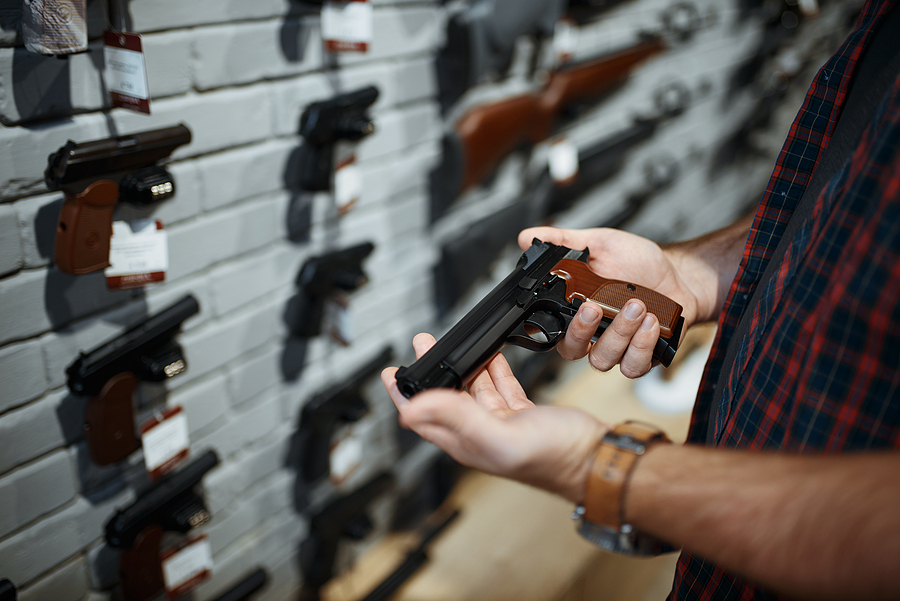Pennsylvania recently became one of four states to sign a pact agreeing to share gun crime statistics, entering a Memorandum of Understanding (MOU) with New York, New Jersey, and Connecticut. Officials claim the agreement will reduce gun-related crimes.
But Second Amendment supporters say this new bureaucracy will only create risks for lawful gun owners while ignoring the real problem of criminals who use guns and don’t keep statistics.
Under the new agreement, law enforcement agencies would be able to share gun violence data with agencies in other states. According to the MOU, “local and state law enforcement would benefit by having the ability to share crime gun data across state lines because firearms trafficking networks frequently engage in criminal activities on an interstate basis.”
Proponents of the pact say it will act as a deterrent.
“This collaboration among our states will be an important resource to protect the public and I’m proud to work with New Jersey, New York, and Connecticut on the shared goal of making our communities safer,” Gov. Tom Wolf (D-Pa.) said in a statement.
Governors Phil Murphy (D-N.J.), Kathy Hochul (D-N.Y.), and Ned Lamont (D-Conn.) all expressed similar sentiments.
While the MOU is being touted as good law enforcement, some are questioning whether it could be an infringement on Second Amendment rights.
Firearms Owners Against Crime president Kim Stolfer said, “This is another tool that will be used to harass citizens who have a license to carry concealed firearms. This has already happened as a result of the state police’s sharing of data about Pennsylvania’s registered gun owners with law enforcement in other states.
“I have a great deal of concern considering the track record of other states’ way of harassing people they perceive as gun owners and having a gun,” Stolfer says. “They interlink the license plate with the database and the names and people are harassed who are simply exercising their constitutional right.
“There are much better approaches that work to reduce gun violence, including cracking down harder on illegal gun trafficking and individuals who commit crimes with illegal guns and ending the ‘catch and release’ of violent armed career criminals in our urban centers,” he said.
Frank Tait, a Wayne resident and NRA member, also has reservations about the new agreement.
“It appears to be a backdoor gun registry,” Tait said. “A gun registry is explicitly prohibited by Pennsylvania law. The state police have a ‘purchase database’ of handguns that skirts the law. But law enforcement uses it as a registry. I expect that this data will be added together. Law enforcement will access this database any time they encounter someone. It won’t be just criminals’ information in the database.”
However, Adam Garber, executive director of the CeaseFirePA Education Fund, thinks the measure is a step in the right direction.
“Today’s announcement will bring law enforcement agencies closer together to help close off more of the pathways for illegal firearms fueling the rise in deadly violence. Each trafficker shutdown is another life saved, another safer community that will remain unscarred. While ultimately we need the General Assembly to enact policies that will strengthen law enforcement’s approach, such as requiring the reporting of lost or stolen firearms, Gov.Wolf’s actions today move us closer to a Commonwealth where residents can live free from the horrific effects of gun violence,” Garber said.
Some local lawmakers, including state Sens. Steve Santarsiero (D-Bucks) and Amanda Cappelletti (D-Montgomery, Delaware) also applauded the move.
“As the gun violence epidemic needlessly rages on, we must take meaningful steps to protect the public and our police officers by focusing our efforts on stopping illegal gun activity,” Santarsiero said,
“I’m proud to see Pennsylvania taking the steps to properly record and investigate firearm violence, in tandem with our neighboring states,” added Cappelletti.
In 2018, New York, New Jersey, and Connecticut entered into a pact with Rhode Island and eventually, Massachusetts, called the “States for Gun Safety Coalition.” That agreement had a similar mission: To share information on illegal guns and disqualified gun owners, which takes this most recent MOU a step further.
Since 2018, violent crime rates have risen in all of those states.
At the time, gun rights advocacy groups slammed this partnership too, saying other tools at states’ disposal had largely led to failures in cleaning up gun crime.
“The bottom line is that for decades our state leaders have had the necessary tools to get criminals and gun traffickers off the streets – and they have failed to do so,” Gun Owners Action League told Boston radio station WBUR in 2018. “Yet another systemic failure of government.”

